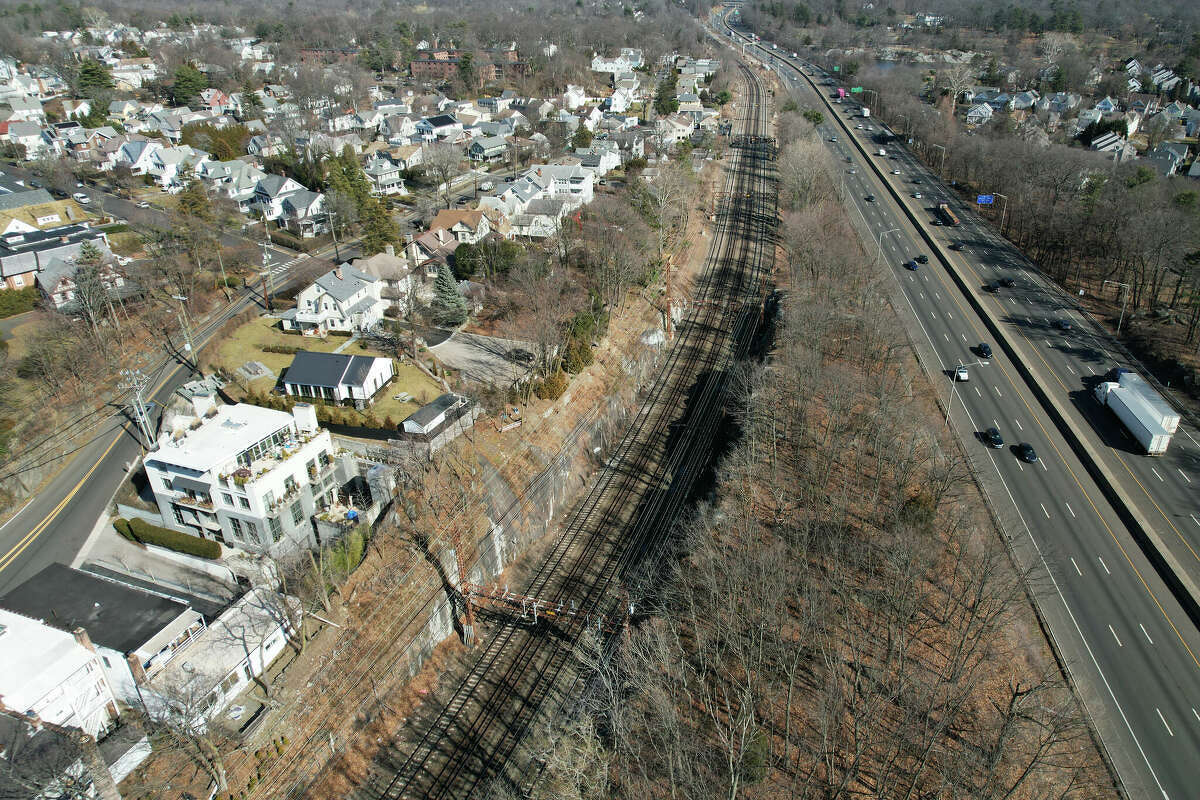
Feb. 23, 2023
GREENWICH — Members of the Planning & Zoning Commission asked a number of critical questions about a proposal to create a “transit oriented district” in the community to promote denser housing near train stations and other transportation hubs.
Local residents expressed skepticism at a meeting Wednesday about the legislation proposed by Desegregate CT, a statewide organization whose mission is to create more affordable housing, through a law called the “Work Live Ride Act.” The proposed legislation, which has not yet been introduced to lawmakers in Hartford, would give technical assistance and planning capacities to local communities paid for with state funding. The goal is to create denser housing near railroad stations and other transportation hubs through new zoning initiatives.
Pete Harrison, the Desegregate CT Director, said the goal is not to create “skyscrapers,” but four to five story buildings near railroad stations and bus lines to help solve “the immediate housing crisis we face in Greenwich.” Desegregate CT is holding informational meetings with planning officials around the state, and it is looking to gain favor in communities with populations of more than 60,000 people that have extensive transit resources — with Greenwich fitting that criterion.
Members of the planning commission said they wanted more information on the proposal — especially how the legislation would be financed — and some commissioners took a decidedly critical stance.
Commissioner Peter Levy said, “We all appreciate you coming in and having this conversation. For me, I don’t have a lot of confidence that a top- down government approach to a problem like this has been very successful in the past. That’s troubling to me. The effort is more of a social experiment. And I think there’s a lack of detail here.”
Chairwoman Margarita Alban noted that serious flooding problems were evident at all four of the train stations in Greenwich, and added, “we have a sewer capacity problem.” She noted that the neighborhood around the central Greenwich station already was fairly dense, with many multi-family homes near there. Traffic was already bad around the central station, she said.
A number of members of the public who spoke at the meeting expressed negative opinions or questions on the proposed Work Live Ride Act.
“This is a social experiment,” said James Sarnelle, “And there’d be a drain on infrastructure and schools.”
Tara Restieri said, “It’s vague and doesn’t answer real town-living issues, and it’s once again a top-down approach — and so lacking in data.”
“What impact would it have on the school system? And services such as fire and law enforcement?” asked Ammer Murad, another local resident.
Several residents asked about Desegregate CT and who funds it.
Harrison said, “We don’t take real-estate money.” As to traffic and concerns about density, Harrison said the goal was to have “less cars on the road, that’s the long-term solution.” He said more pedestrian trips and access to public transportation was key.
“There’s shift to more walkable communities,” he said.
“It’s not a social experiment, and there’s precedent in other places,” Harrison told the commission after members of the public spoke. “There’s an opportunity for Connecticut to really position itself for the 21st century, position itself for growth…. I’m excited to get the feedback and continue the conversation. Maybe Greenwich isn’t there yet. There are a lot of places that support this.”
Alban, the chairwoman, said the commission could send along suggestions and written comments at a later date to Desegregate CT.
The Work Ride Live acts would allow for an “opt-in” approach, so local leaders could agree to take part in the initiative and seek state funding and assistance to build affordable housing. The non-profit housing group proposed another legislative package linked to transportation hubs last year that did not advance in Hartford.
